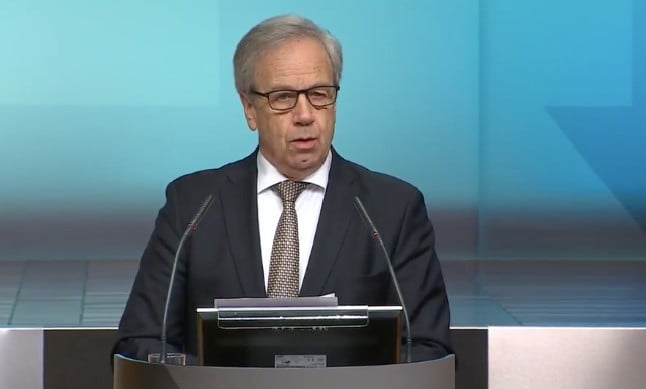RATES
Norway central bank cuts rates to lowest level in 200 years
Norway's central bank cut its key policy rate to the lowest level in its 200-year history on Friday, to help balance the double blow of the coronavirus crisis and an oil price slump.
Published: 20 March 2020 21:24 CET

Norges Bank governor Øystein Olsen announcing the first rate cut on March 13. Photo: Norges/screenshot
The bank on Friday morning announced that it would cut the policy rate by 0.75 percentage points to 0.25 percent, one notch before the previous historic low of 0.5 percent.
In an interview with Norway's state broadcaster NRK, Norges Bank governor Øystein Olsen said that the cut would not be enough on its own to protect the economy.
“But it can help to offset some of the impact,” he said. “In particular, it will make it easier for households and companies that have debt to handle that debt in a very difficult time.”
He said that further cuts may be necessary. “I do not exclude further interest rate reductions if the situation requires it.”
The Norwegian Krone has plunged more than a fifth against the dollar so far this month.
Url copied to clipboard!


 Please whitelist us to continue reading.
Please whitelist us to continue reading.
Member comments